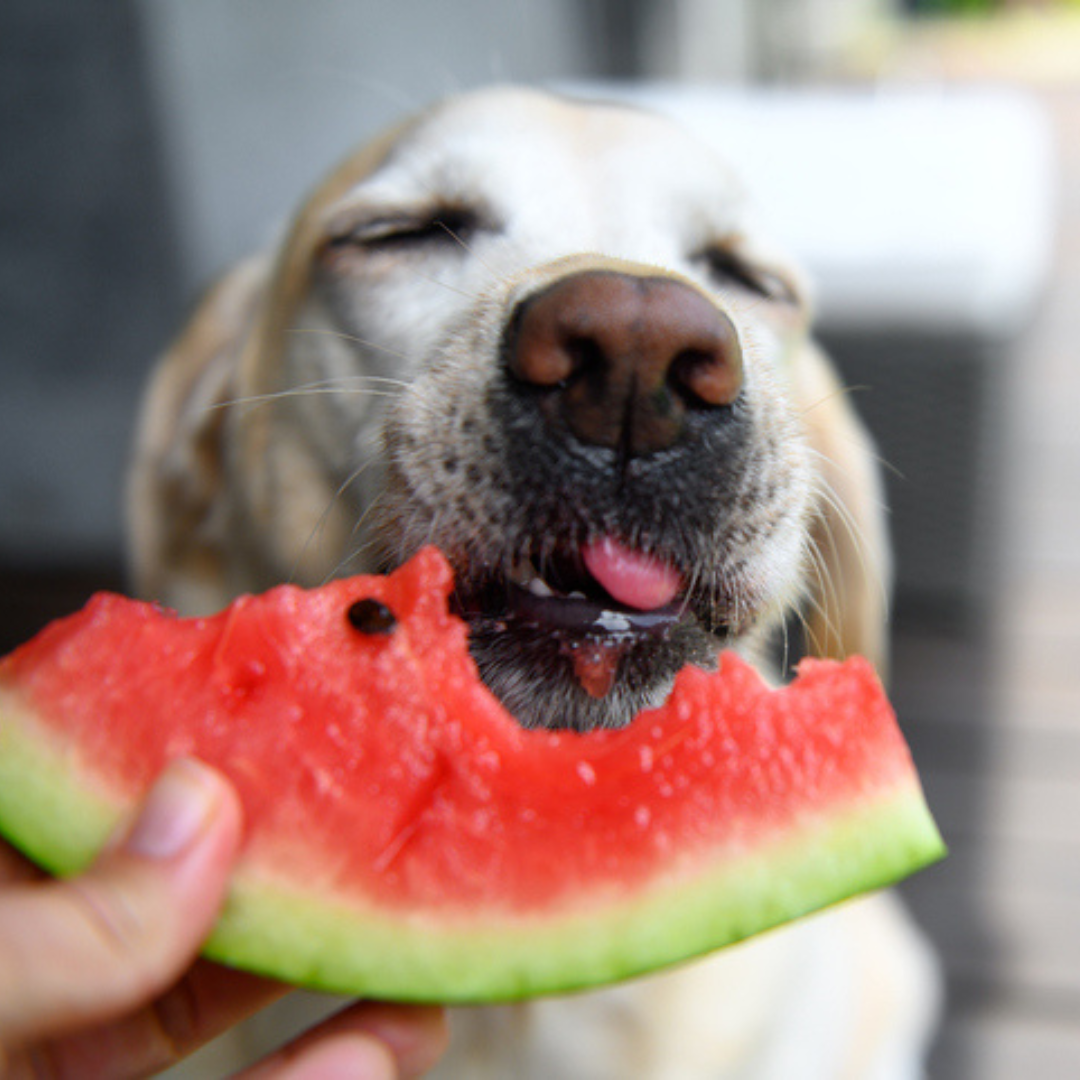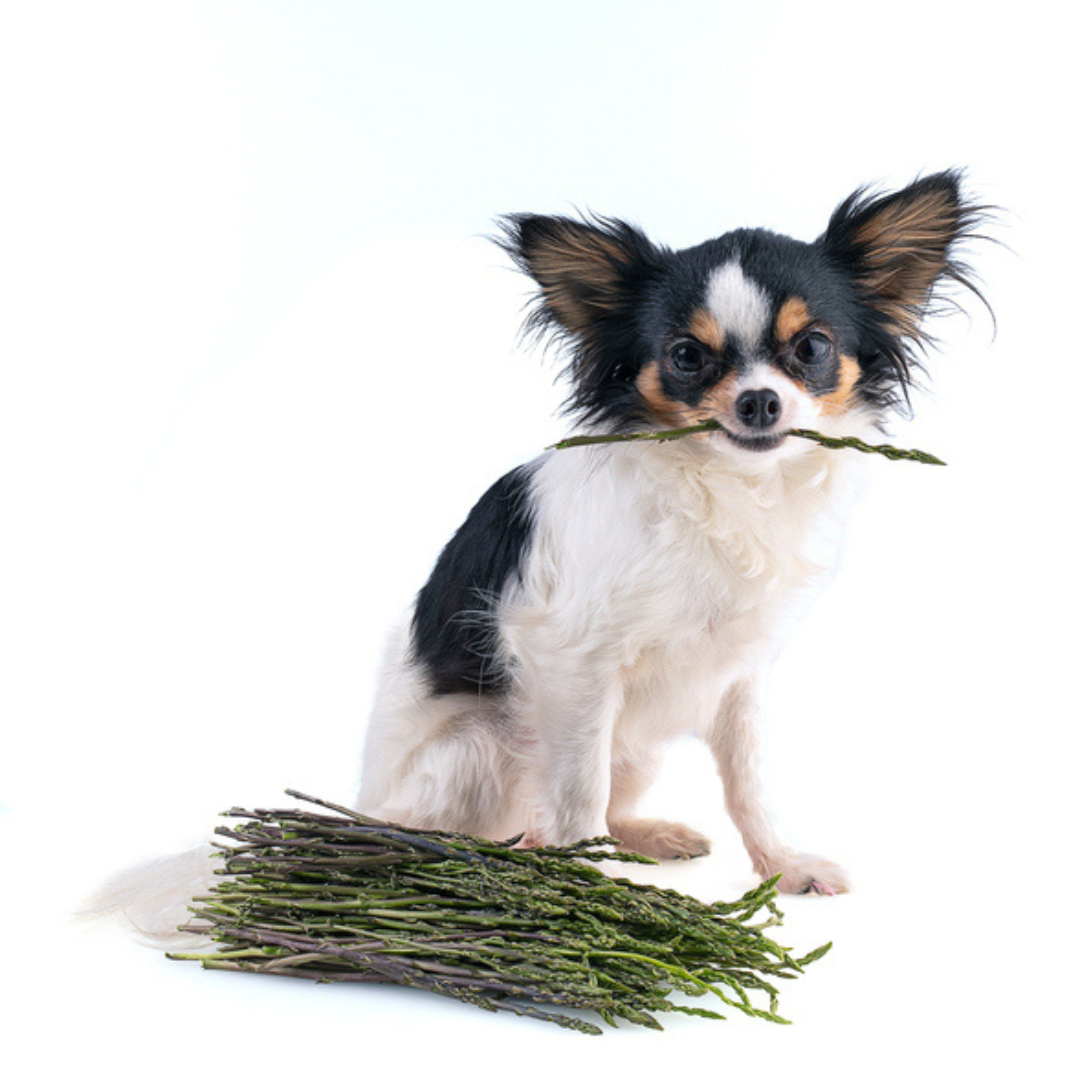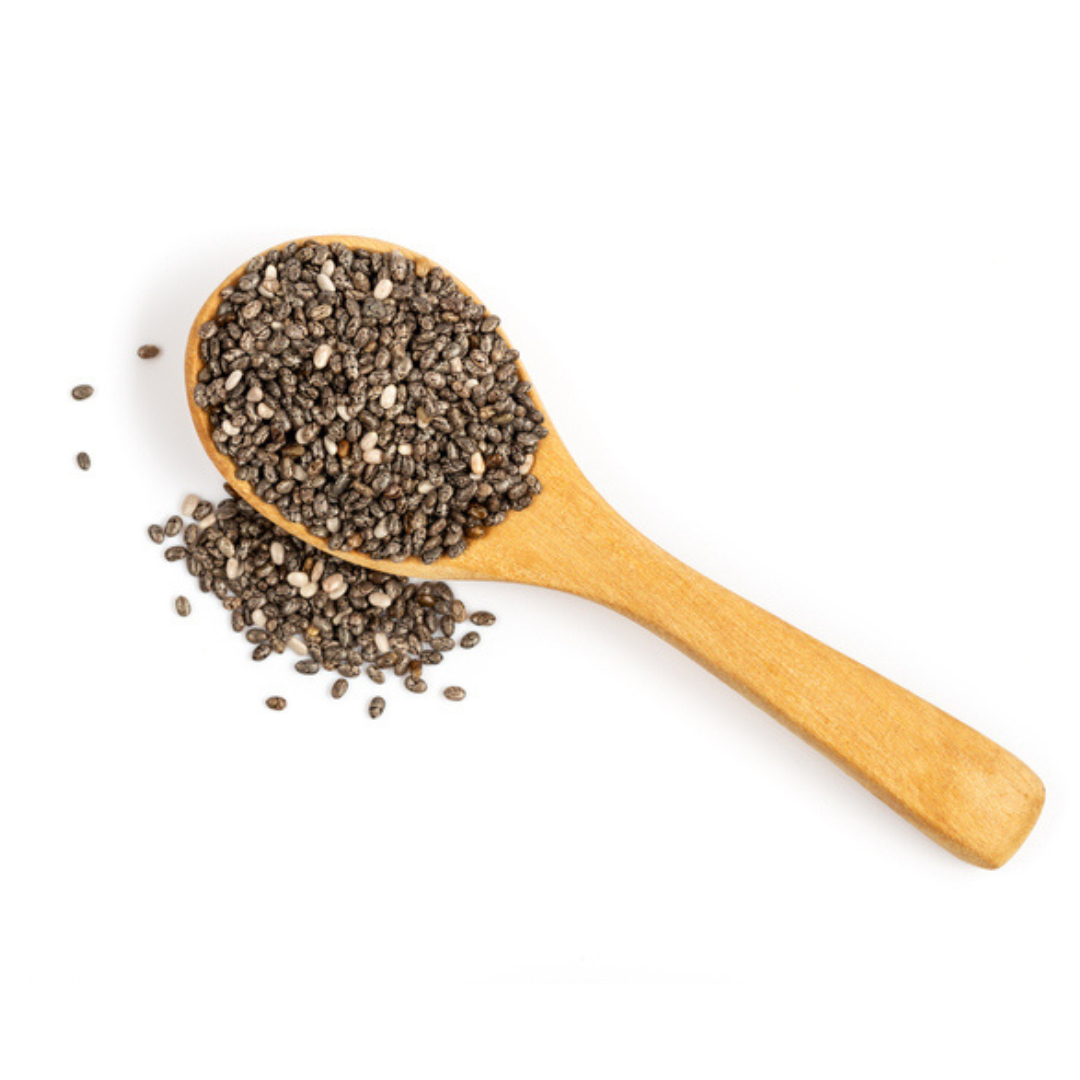Highlights of Watermelon Blog for Dogs
-
Learn if dogs can eat watermelon
-
Understanding the nutritional value of watermelon for dogs
-
A guide on how to feed watermelon to your dog
-
Recommendations and tips
-
Quick and easy recipes
Can Dogs Have Watermelon?
Can dogs have watermelon? As a loving dog parent, you may be curious about whether your pup can have a bite of your slice of watermelon on these hot summer days. In this blog, we will share the many benefits of watermelon along with fun summer dog treat recipes. We will also share what to be careful about when feeding your dog watermelon.
Is Watermelon Healthy for Dogs?
Absolutely, you can feed watermelon to your pup as a refreshing treat. This hydrating fruit is not only refreshing but is healthy and filled with vitamins A, B6, and C, along with essential nutrients like potassium and magnesium. It's a fantastic way to boost your dog's hydration and nutrition, especially during those warm summer months. However, there are some things to be mindful of. The flesh of the watermelon is the only part that's recommended for dogs. It's important to ensure that all seeds are removed before offering it to your dog, as these could potentially lead to intestinal blockages. Similarly, the hard, green rind is a no-go area because it poses a risk for choking and digestive troubles. When introducing watermelon to your dog, do so in small quantities to observe how they react to this new treat. So, go ahead and let your dog taste this juicy fruit. We will dive into some fun watermelon recipes for your dog.
Nutritional Value of Watermelon for Dogs
Now, for the numerous health benefits of watermelon. Watermelon is actually considered a superfood for dogs. It has many vitamins, minerals, and hydration with each juicy bite. Vitamin A, found abundantly in watermelon, plays a pivotal role in supporting eye health, while Vitamin B6 is essential for protein synthesis, helping to maintain healthy brain function and boost energy levels. Vitamin C, another crucial component, serves as an antioxidant, helping to fortify your dog's immune system.
Not to overlook, the mineral content of watermelon, including potassium and magnesium, contributes significantly to nerve function, muscle health, and the regulation of enzyme processes. The high water content, over 90%, ensures that indulging in this fruit can be a delightful way to keep your pooch well-hydrated on those sweltering summer days. Watermelon is also loaded with lycopene, it has the most of any fruit. Lycopene has been proven to help heart health and has many other benefits in both humans and animals.
Feeding your dog watermelon brings many health benefits, from enhancing hydration to bolstering their nutritional intake with essential vitamins and minerals. This not only helps their health but also introduces a variety of foods which can help your dog's gut microbiome. Watermelon is a delicious, low-calorie treat that is fun & healthy.
Watermelon Recipes for Dogs
Check out these fun recipes with watermelon that you can make for your dog!
Essential Nutrient Mix for Dogs
When you’re home cooking for your dog is important to balance your dog’s meals. You want to ensure they are getting all the nutrients they require to thrive and be healthy. Our Essential Nutrient Mix was developed by vets and nutritionists to ensure your dog is getting the optimal vitamins and minerals. Our Essential Nutrient Mix includes probiotics, prebiotics, calcium, omegas and more. Use alongside our nutritionist developed recipes to make complete and balanced meals or use with your home cooking.
Get your dog our Essential Nutrient Mix today.

Can Dogs Have Watermelon Skin? Can Dogs Have Watermelon rind? Can Dogs Eat Watermelon Rinds? Can Dogs Eat Watermelon Skin
When it comes to feeding your dog watermelon, it's essential to be careful with the seeds and rind. These parts of the fruit should be avoided. The seeds, small as they may seem, can become a choking hazard or even lead to intestinal blockages if ingested in significant numbers. It's always better to err on the side of caution and remove every seed before offering a piece to your pooch. An easy way to do this is to blend the watermelon and strain it.
Equally important is steering clear of the watermelon rind. Though it might seem like a crunchy treat, the rind is notoriously tough and can be challenging for dogs to digest. Consuming it might lead to gastrointestinal discomfort or more severe issues.
When prepping watermelon for your dog, the flesh is where it's at—this juicy, hydrating part of the fruit is packed with nutrients and is safe for your dog to enjoy. By keeping these guidelines in mind and focusing on the red flesh of the watermelon, you ensure that your dog gets to enjoy this summertime treat without any unwelcome side effects. Remember, keeping your dog safe is as important as keeping them happy and hydrated!
How to Prepare Watermelon for Your Dog
When feeding this healthy snack to your dog, safety and moderation are key. Begin by removing the seeds and rind, ensuring only the fleshy part is served. Slice the fruit into appropriately sized, bite-sized pieces that match your dog's size and chewing abilities. It's advisable to introduce watermelon slowly into their diet, observing for any potential digestive issues or allergic reactions. This gradual approach allows you to gauge how well your dog tolerates this delicious fruit while ensuring their well-being.
Can Puppies eat watermelon? Can Puppies Have Watermelon?
Yes, puppies can eat watermelon. Studies have shown that introducing new foods to your puppy can help their gut long-term. Just remember to introduce the food slowly and in puppy-sized portions.
Frequently Asked Questions About Dogs and Watermelon
Navigating the world of canine nutrition can sometimes feel like a maze, but don’t worry—we're here to shed light on some common questions:
-
Is watermelon skin safe for dogs to munch on? While the pink flesh of watermelon is a juicy treat for your dogs, the skin, or rind, should be avoided. It's tough for them to digest and might lead to a less than pleasant aftermath in their tummy.
-
Should dogs eat melon? Can dogs eat melon? What about other types of melon? Can dogs have a taste? Absolutely! Dogs can enjoy a variety of melons like cantaloupe and honeydew. Just remember, moderation is key, and always remove any seeds to prevent choking hazards. Learn more about what fruits are safe & not safe for your dog HERE!
-
And the puppies, can they join in on the watermelon fun? Puppies can indeed have a small taste of watermelon, but it's best to introduce any new food slowly and keep an eye out for any signs of a sensitive reaction. Ensure to serve small pieces of watermelon.
-
Can dogs eat watermelon seeds or pips? No best to avoid.
-
Can Dogs Eat Cherries? The answer is yes and no; dogs should not eat whole cherries but cherries without pits, and stems are fine. This is because cherries contain a substance called cyanide, which is poisonous to dogs, that is found in some parts of the cherry, like the cherry pit, stem, and leaves. Learn more about cherries HERE!







